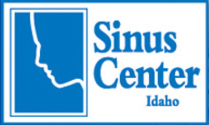Sinus headaches are associated with a swelling of the membranes lining the sinuses (spaces adjacent to the nasal passages). Pain occurs in the affected region – the result of air, pus, and mucus being trapped within the obstructed sinuses. The discomfort often occurs under the eye and in the upper teeth (disguised as a headache or toothache). Sinus headaches tend to worsen as you bend forward or lie down. The key to relieving the symptoms is to reduce sinus swelling and inflammation and facilitate mucous drainage from the sinuses.
There are several at-home steps that help prevent sinus headache or alleviate its pain. They include:
- Breathe moist air: Relief for a sinus headache can be achieved by humidifying the dry air environment. This can be done by using a steam vaporizer or cool-mist humidifier, steam from a basin of hot water, or steam from a hot shower.
- Alternate hot and cold compresses: Place a hot compress across your sinuses for three minutes, and then a cold compress for 30 seconds. Repeat this procedure three times per treatment, two to six times a day.
- Nasal irrigation: Some believe that when nasal irrigation or rinse is performed, mucus, allergy creating particles and irritants such as pollens, dust particles, pollutants and bacteria are washed away, reducing the inflammation of the mucous membrane. Normal mucosa will fight infections and allergies better and will reduce the symptoms. Nasal irrigation helps shrink the sinus membranes and thus increases drainage. There are several over-the-counter nasal rinse products available. Consult your ear, nose, and throat specialist for directions on making a home nasal rinse or irrigation solution.
- Over-the-counter medications: Some over-the-counter (OTC) drugs are highly effective in reducing sinus headache pain. The primary ingredient in most OTC pain relievers is aspirin, acetaminophen, ibuprofen, naproxen, or a combination of them. The best way to choose a pain reliever is by determining which of these ingredients works best for you.
- Decongestants: Sinus pressure headaches caused by allergies are usually treated with decongestants and antihistamines. In difficult cases, nasal steroid sprays may be recommended.
- Alternative medicine: Chinese herbalists use Magnolia Flower as a remedy for clogged sinus and nasal passages. In conjunction with other herbs, such as angelica, mint, and chrysanthemum, it is often recommended for upper respiratory tract infections and sinus headaches, although its effectiveness for these problems has not been scientifically confirmed.
If none of these preventative measures or treatments is effective, a visit to a sinus specialist may be warranted. It is common for a sufferer of sinus problems to think of an ear, nose, throat doctor or family physician when seeking help for such problems. In most cases, these doctors care for sinus problems with a high degree of success. However, a clinic that is dedicated to treatment of sinus disease and a medical staff with experience can help those patients who do not respond to conservative medical treatment or who need more intervention.
During the examination, a CT scan of the sinuses may be ordered to determine the extent of blockage caused by chronic sinusitis. If no chronic sinusitis were found, treatment might then include allergy testing and desensitization (allergy shots). Acute sinusitis is treated with antibiotics and decongestants. If antibiotics fail to relieve the chronic sinusitis and accompanying headaches, endoscopic or image-guided surgery may be the recommended treatment.
